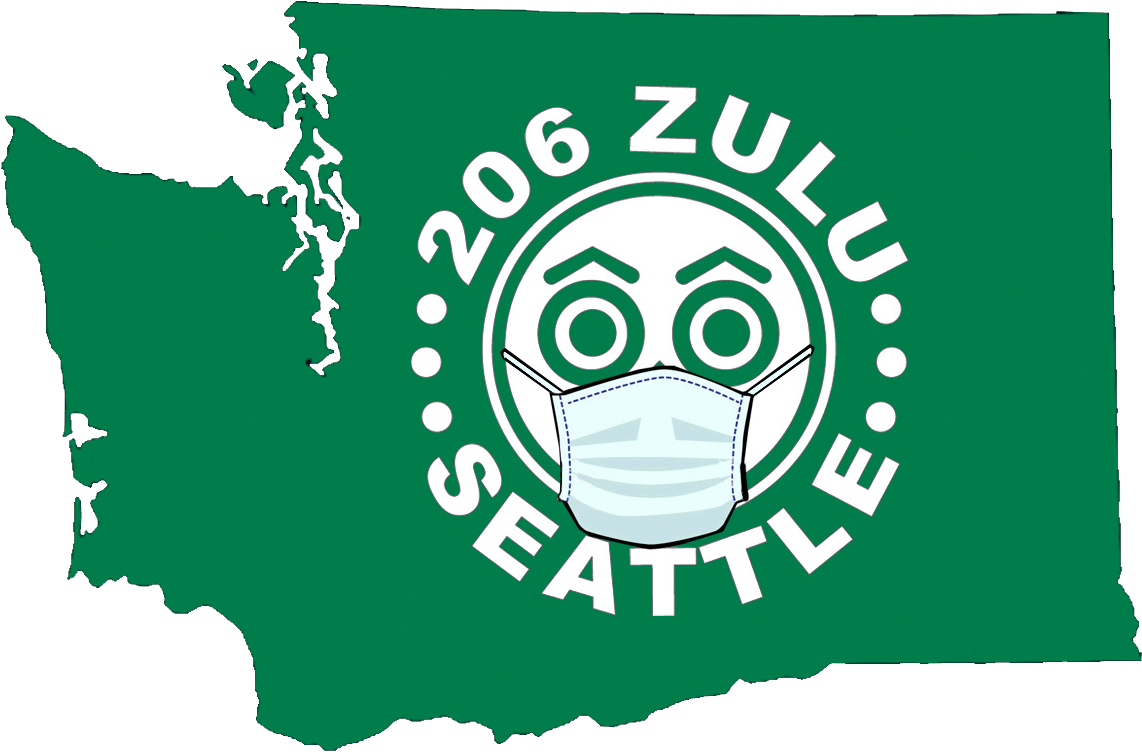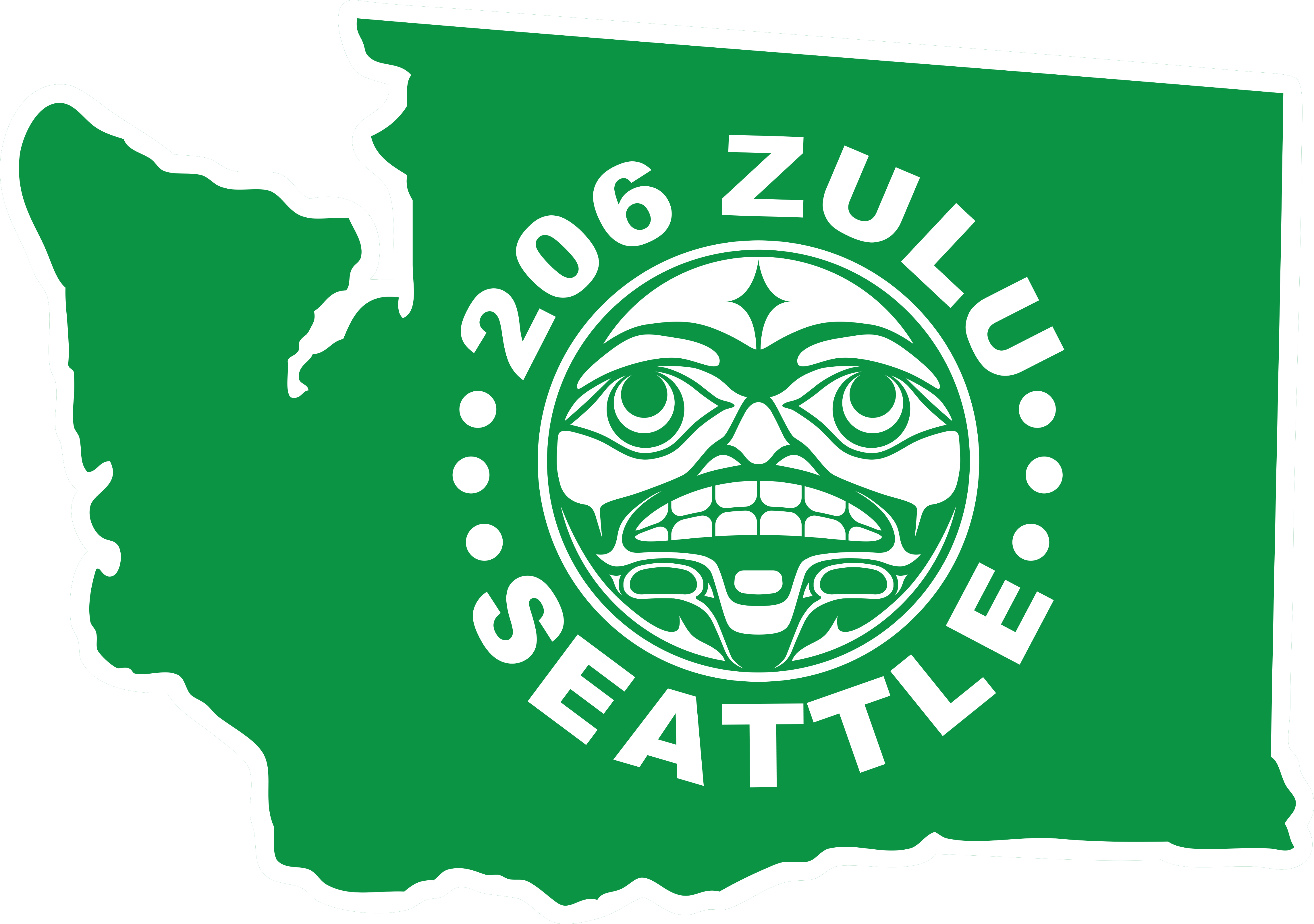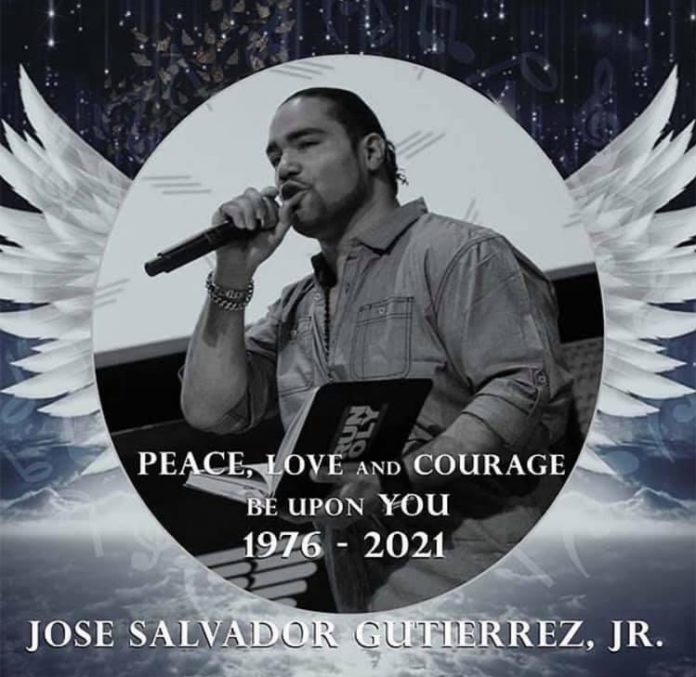“We wanna honor our legends and honor our loved ones while they still breathe oxygen.”
How many people listened to Luvva J say these words while hosting the 206 Zulu 13th anniversary in 2017 and thought we’d be honoring his memory today? On Friday, November 5, 2021 a pillar of the Northwest Hip Hop community passed on when Jose Salvador Gutierrez, Jr., aka DJ Luvva J, died from complications of Covid-19.
Scrolling through his social media feeds today, you’d see an outpouring of individuals honoring Luvva J, remembering that Jose put them on the turntables for the first time or kept their career alive by advocating for airplay of their music. You’d see equally, people remembering Jose for giving them the opportunity of a lifetime and for making them a hot meal while they traveled through whatever Northwest city he was in at the time. He interviewed legends of Hip Hop Culture and small town, unknown artists alike. When he did, he had a way of making whoever it was feel both like a superstar and like a friend when they talked to him. Those seemingly contrasting ideas existed in Jose in a way that made things like fame and friendship seem like different sides of the same coin.
From his name alone, it wouldn’t be a stretch to say Luvva J built his brand on love. To properly understand that idea, we’d have to look at his works. Jose was a hustler of love. He sold love like people around him sold drugs. As a teenager, anyone who went to River Ridge High School in Lacey, Washington would have heard him rapping at the lunch room table, sounds of laughter and congratulations coming from him as other people took their turns. He made a mark at many other things, but a few people that were there for those moments know he was a profound lyricist, a foundation for the public speeches many would hear over the years.
For those of us who see Hip Hop as a vehicle for social change, interpersonal connection, and spiritual growth, Jose brought those values to life in a way that taught many younger activists what’s possible. As an event promoter in an industry where so many people are looking for a way to make their money stack, he brought big name artists to venues as a way to draw attention to the local artists that opened for them. As a radio personality, he carved a lane where he was able to play incredible musicians that just needed to be heard. He increased the rotation of Hip Hop songs with uplifting and positive messages. He interviewed rap stars and got them talking about health and wellness. On a recent podcast he filmed during quarantine, he had a conversation with J-Ro of the infamous rap group Tha Alkaholiks about how people should stop drinking. Luvva J brought those moments into the world.
A natural leader is someone who uplifts, gives guidance when their knowledge is needed, and works together with others to build frameworks that go on to support themselves. If you looked at Jose’s resume, you’d see titles like CEO, founder, executive director, and of course professor. He taught as a matter of principle, formally at the Puget Sound Community College and the Northwest Indian College, and informally on the microphone, or handing a friend a copy of KRS-One’s Gospel of Hip Hop and helping them study it. More importantly, he set the stage for people to pursue their own learning. He asked questions that made you think harder about your assumptions. He organized Infinity Nights based on the Zulu formula of books, chess, and good company where people from Olympia, Tacoma, and Seattle gathered together for the intended purpose of learning more about themselves, each other, and a society that he knew could be made better if we tried.
At times it felt like anything Hip Hop that was happening up and down the Seattle to Centralia corridor of Western Washington went through Luvva J. You’d say that about some people in their region because they see themselves as a gatekeeper, but things went through Jose because he was a helper. He had his hand in everything because everyone can use an extra hand and Jose knew it takes a village. Hip Hop in the Northwest needed exposure. Readers that lived in the Seattle area in the early 2000’s know Seaspot Magazine played a huge role in providing that. Seaspot needed contributors, so Jose became one. Then he became editor-in-chief for the magazine. KAOS community radio station in Olympia needed DJs. So Jose became one. Then he became music director for the station. Then he became a national board member for Pacifica Radio, KAOS’s affiliate parent company. People deferred to Luvva J in those situations because they could tell he was working from a place of love and that’s what builds institutions.
When Jose loved you, you knew it because he acted on it. He said it out loud. He sang out Northwest pride everywhere he went. Instead of trying to move his talent into a bigger market, he stayed put in Washington and worked with all his heart to build its market share. Many places in the Puget Sound would claim Jose as their own but he represented Lacey, the little city an hour south of Seattle where he built his first foundations. He didn’t look for something bigger to represent his larger than life persona, he found the greatness where he was and made it appear greater to the rest of the world. When he spoke the name Hawks Prairie, a little group of neighborhoods surrounding a quick truck stop off of the nondescript Lacey exit on Interstate-5, he made it sound like it was giving Manhattan a run for its money. He did the same trick when he spoke the names of his friends, which were legion. And among all the works that he did in the communities that he became a part of in his life, that trick might be the one that makes his absence the most felt.
We all look for places to turn in times of loss, especially in a moment when a death impacts so many people and places, as Jose’s did. The Tibetan Book of Living and Dying by Sogyal Rinpoche has a line that reads: “This world can seem marvelously convincing until death collapses the illusion and evicts us from our hiding place.” That line speaks of transition as a new potential.
The Tibetan Book of Living and Dying by Sogyal Rinpoche has a line that reads: “This world can seem marvelously convincing until death collapses the illusion and evicts us from our hiding place.” That line speaks of transition as a new potential.
Luvva J was intensely spiritual and at the same time, he’d quote a line like this and end it with “Not to get all religified.” He lived a life of brilliant contrast and myriad juxtapositions but his polarities existed within love. We don’t know what comes after this physical life but remembering a man that used all the power of his Hip Hop flash and bravado as a tool to make other people feel like stars, allows separations like the one between life and death to feel less relevant. Luvva J opened doors that created opportunities for so many. Somehow, from the midst of mourning, one can’t help but be a little excited about what he might do on the other side of the door he just walked through.


